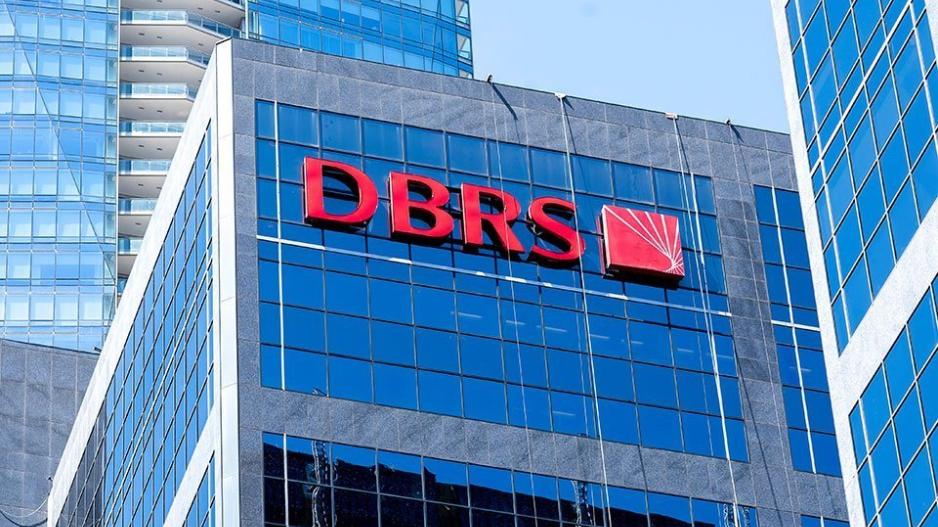Moody’s Elevates Cyprus to Investment Grade; DBRS Rates a Notch Higher
Statements From the President, the Finance Minister, and KEVE
Moody's credit rating agency elevated the Cypriot economy to the investment grade Baa2 from Ba1, a significant two-notch upgrade. Accompanying this decision, the agency revised its outlook from positive to stable.
Previously, Moody's was the lone holdout among the four major credit rating agencies that did not recognize Cyprus as an investment grade. With this announcement, all, including Fitch, Standard and Poor's, Moody's, and DBRS, now categorize the Cypriot economy similarly.
Moody's also raised the ratings for the country's senior unsecured medium-term note (MTN) programme to (P)Baa2 from (P)Ba1. Additionally, the commercial paper rating has been elevated to P-2 from Not Prime (NP), with another short-term rating going up to (P)P-2 from (P)NP.
The decision to upgrade was informed by consistent improvements in Cyprus' credit profile, resulting from both past and ongoing economic, fiscal, and banking reforms. The implementation of reforms and significant investments from both public and private sectors, especially within the NextGenerationEU framework, supports Moody’s positive medium-term growth perspective.
Moody's remarked, "Fiscal strength has seen significant improvements, with the pandemic's effects on the economy and fiscal matters being transient. The declining debt burden trend, disrupted briefly, is anticipated to resume in the coming years."
However, the stable outlook does weigh the ongoing positive trends against persisting challenges. Moody's outlined potential obstacles, such as delays in the execution of investments and reforms tied to Cyprus' National Recovery and Resilience Plan. Other concerns include banking system risks and climate hazards that could negatively affect growth.
Moody's forecasts a 2.3% GDP growth in 2023, followed by 2.8% in 2024. From 2025 to 2027, the expected average growth rate is 3.2%, fueled by foreign direct investment projects and Next Generation Europe-based investments.
Additionally, fiscal surpluses of 1.6% of GDP are projected for both 2023 and 2024. By 2027, Moody's expects the debt-to-GDP ratio to plummet below 60%, down from 86.5% in 2022.
Despite external pressures, like the European Central Bank's monetary policy changes, Moody's remains optimistic about Cyprus' debt management. The country's financial strength is reflected in its debt structure, which boasts no floating-rate securities, no foreign currency debts, minimal short-term debt, and an average debt maturity of 7.5 years as of August 2023. A substantial cash buffer, mainly accumulated in 2020, provides the government with notable funding flexibility.
Factors that could spur another upgrade include faster fiscal improvements, more efficient utilization of EU funds, and successful reforms, especially in the judiciary and corruption control sectors. A reduction in banking sector risks would also be credit-positive.
Conversely, negative economic outcomes, significant fiscal deteriorations, or increased banking sector risks could pressure a downgrade.
According to Moody's, the Cypriot banking sector has been showing promising signs of strength. As Moody's highlighted, Cypriot banks have seen reduced leverage, better liquidity, and capital ratios. Furthermore, their profitability metrics have improved, drawing them closer to their European counterparts. Moody's anticipates this positive trend to continue in the coming years, with a consistent reduction in non-performing loans, enhancing the asset quality of Cypriot banks.

Furthermore, DBRS has elevated the Republic of Cyprus's long-term ratings to BBB (high) from BBB, accompanied by a stable outlook. This move places Cyprus a notch above the ratings given by the other three leading credit rating agencies: Moody's, Fitch, and Standard and Poor's.
Simultaneously, DBRS Morningstar boosted the Republic of Cyprus' Short-Term Foreign and Local Currency – Issuer Ratings from R-2 (high) to R-1 (low), maintaining a stable trend for all ratings.
The credit rating agency attributes this upgrade to a notable reduction in government debt and its optimistic forecast for a continual improvement in public debt metrics in the coming years. Remarkably, general government gross debt decreased from 101.2% of GDP in 2021 to 86.5% in 2022 and is projected to drop further to 67.3% by 2025. This positive trajectory is fueled by dynamic economic growth and substantial primary surpluses.
DBRS Morningstar notes, "While moderating, Cyprus' economic growth stands out as one of the most potent in the euro area." They anticipate the real GDP to grow by 2.4% in 2023 and 2.7% in 2024, bolstered by rising tourist numbers, the burgeoning information and communications technology (ICT) sector, and strong domestic demand.
The agency also expects the new Cypriot government to maintain its disciplined fiscal approach. As part of its stability program, the government aims for primary budget surpluses of 3.2% of GDP in 2023 and 3.7% in 2024.
DBRS Morningstar acknowledges that global financial vulnerabilities, which had heightened in March 2023, have receded lately. While potential risks from the banking sector linger, the agency remains confident about the continued decline in debt metrics in the foreseeable future.
The upgrades are largely credited to advancements in DBRS Morningstar’s evaluation criteria, particularly in "Debt and Liquidity" and "Fiscal Management and Policy."
Highlighting the basis for the ratings, DBRS notes that the BBB (high) rating with a Stable Trend reflects Cyprus' political stability, the government's effective fiscal and economic strategies, and a commendable government debt profile. Despite a dip in governance indicators over recent years, DBRS Morningstar sees Cyprus' EU membership as a pivotal stabilizer for institutional quality.
However, challenges persist. DBRS Morningstar draws attention to lingering non-performing loans (NPLs) in the banking sector and the economy's subpar labor productivity. Moreover, Cyprus' service-centric economy, due to its smaller scale, remains susceptible to external shocks.

Nikos Christodoulides has expressed profound gratitude following the upgrade of the Cypriot economy by Moody's to investment grade status, "a significant achievement after a 12-year hiatus".
In a statement released on Saturday, President Christodoulides underscored that this accomplishment stemmed from the unwavering dedication and sacrifices of the Cypriot people. "I extend my heartfelt thanks to them," he said. The president further credited the country's disciplined fiscal approach over the past several years as a pivotal factor in this upgrade.
Christodoulides emphasized that such an upgrade will usher in new opportunities, attracting high-quality investments and fostering job creation. "In our seven months in office, we've been on this growth trajectory, and we remain committed to it," he remarked, highlighting his administration's dedication to bolstering the nation's economy and amplifying its growth.
He stressed the importance of maintaining a responsible approach to governance, steering clear of populist policies. Such a mindset, he believes, is paramount for ensuring the growth, safety, and prosperity of the Cypriot populace and guarantees the government's ability to effectuate impactful social policies.
Furthermore, President Christodoulides reiterated his administration's priority: supporting society's vulnerable segments, fortifying the middle class, and championing entrepreneurial endeavors. He emphasized the importance of fiscal prudence and astute public finance management, principles that underpin the nation's inaugural budget.
In his concluding remarks, President Christodoulides said, "We're steadfastly working on an ambitious governance strategy. It's designed to encompass pivotal policies and reforms that will elevate citizens' quality of life and acknowledge the collective efforts of our nation."

Finance Minister Makis Keravnos praised Moody's decision to elevate Cyprus's economy to the investment grade, as "this move underscores the impressive resilience of the Cypriot economy amidst global challenges." The Minister emphasized that the government's strategic economic policies played a pivotal role in fortifying the nation's economy, public finances, and banking sector.
Furthermore, reflecting on the DBRS's uplift of Cyprus' credit rating to "BBB (high) with a stable outlook," Keravnos attributed this positive change to the diminishing public debt and a strong economic growth trajectory, which is projected to increase real GDP by 2.4% in 2023 and 2.7% in 2024.
In his official statement, the Minister announced that following the Moody's endorsement, "Cyprus has now achieved investment grade status across all major international rating agencies." He added that while most agencies place Cyprus within the first two levels of the investment grade, DBRS ranks it at the third.
Keravnos assured the public of the government's commitment to backing economic activity, emphasizing its focus on sustainable development, employment, and fiscal prudence. He underscored the Ministry's strategy, which is oriented towards harnessing European funds and programs to the fullest to fortify the Cypriot economy and society.

The Cyprus Chamber of Commerce and Industry has expressed its great satisfaction over the two-notch upgrade of Cyprus' credit rating by Moody’s.
In a statement, KEVE mentioned this significant development marks the return of Cyprus to the investment grade, moving it out of the "junk" category after 11 years. "The advantages of this upgrade for Cyprus are crystal clear. Now, we can approach foreign markets unhindered, promote our investments more efficiently, and generally project our country's economic persona more robustly abroad," the statement said.
However, KEVE pointed out that Moody’s has also highlighted challenges that still linger in the Cypriot economy. Among these challenges are the potential slower progress in implementing the investments and reforms related to the Cyprus National Recovery and Resilience Plan, as well as lingering risks tied to the banking sector that could jeopardize positive economic and fiscal momentum. KEVE added that Moody’s anticipates the authorities will remain committed to fiscal discipline.
The statement further mentions that "Cyprus' exposure to climate risks could potentially undermine growth more than currently expected."
KEVE emphasized the importance of maintaining fiscal stability, promptly advancing reforms, efficiently utilizing the 1.2 billion euros from the Recovery and Resilience Fund, ensuring the full rectification of the banking system, and promoting policies addressing climate change.
"We urge all stakeholders, including the government, parliament, and the union movement, to rise to the occasion and collaborate in leveraging the favorable environment the Moody’s upgrade has cultivated for our economy," KEVE's statement concluded.






